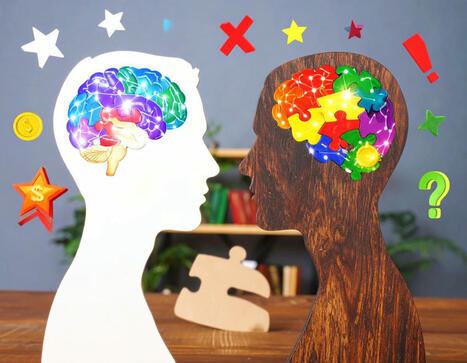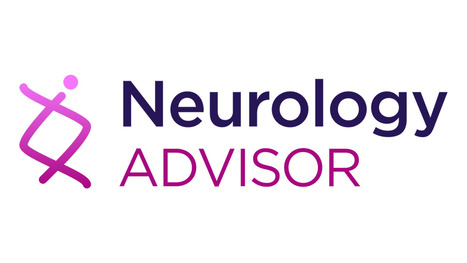 Your new post is loading...
 Your new post is loading...
From pursuing joy without guilt to creating rituals to remember, there are ways to navigate the life after loss.
There's Big-D Depression, the clinical kind, and little-d depression, the passing mood kind. All of us experience little-d depression sometimes, but not necessarily Big-D.
(The Conversation is an independent and nonprofit source of news, analysis and commentary from academic experts.)
In today’s column, you will meet three women who are struggling with clinical depression. By looking at their lives, you will gain knowledge about depression: What it looks like, the three …
Introduction: Caregivers for people diagnosed with mental health disorders can be more susceptible to experiencing increased levels of fatigue, anxiety, depression, and overall stress due to the demanding role of caregiving. This can significantly impact the physical and mental health of the care provider. The purpose of this study is to examine the impact of anxiety, depression, and fatigue on quality of life in caregivers of individuals with mental health disorders.
Methods: In this cross-sectional study, 112 caregivers of individuals with mental disorders completed the following scales: i) Hospital Anxiety and Depression Scale for the evaluation of anxiety and depression, ii) Kingston Caregiver Stress Scale for the evaluation of caregivers’ stress, iii) Fatigue Severity Scale for the evaluation of fatigue, iv) SF-12 Health Survey for the evaluation of quality of life, and v) A questionnaire about demographics. Variables were tested for normality using the Kolmogorov-Smirnov criterion. Quantitative variables were expressed as mean values (standard deviation) and as median (interquartile range). Qualitative variables were expressed as absolute (N) and relative frequencies (%). Spearman correlation coefficients (rho) were used to explore the association of two continuous variables. Multiple linear regression analyses were used with the SF-12 dimensions’ scores as dependent variables.
Results: Increased fatigue, higher levels of anxiety and depression, and increased overall stress were associated with poorer physical and mental health outcomes for caregivers of people with mental health disorders (p<0.001). An increase in fatigue was also associated with higher levels of anxiety, depression, and stress (p<0.001). Caregivers with a pre-existing health problem had poorer physical health outcomes (p<0.001). An extended duration of caregiving was associated with reduced physical health (p=0.017). Parental caregivers reported low mental health (p=0.005).
Conclusions: Caregiving was associated with increased fatigue, anxiety, depression and stress, leading to poorer physical and mental health outcomes for caregivers. Creating a coherent support framework that respects caregivers' needs and focuses on preventing burnout can play a key role in improving their well-being and quality of life, while strengthening the quality of care they provide.
Certain lifestyle habits may jeopardize your health.
When talking with your loved ones about depression, try not to self-isolate, let people know how to best support you, and make sure to assert boundaries.
It has been said that we grieve because we love. I said it myself in an essay a little ove
Loss of a pet falls into what researchers call disenfranchised grief in which the pain is often minimized or discounted. Claudia Luna/iStock via Gett
A Danish study finds that intense, long-lasting grief could increase the risk of death up to 10 years after loss.
A new imaging study reveals that young adults with a higher genetic risk for depression show diminished brain activity when processing rewards and punishments. Using data from nearly 900 healthy twins and siblings, researchers found altered activation in brain regions linked to attention and decision-making—well before any symptoms of depression appeared.
Relatives bereaved by natural death with high and sustained grief symptoms have higher mental health care use and mortality for up to 10 years after loss.
In recent weeks, our community has faced an unthinkable tragedy.
|
Cara Mearns-Thompson is clinical director and co-founder of The Grief Club of Minnesota, an organization that works to support grieving children and teens.
Help from a therapist is an important tool for emotional healing after a miscarriage.
Discover how Beth Bigler helps pet parents navigate the profound sorrow of losing a beloved animal companion. Pet parents make peace with the silence that follows a beloved companion’s departure
In this conversation, Nate is joined by Stephen Jenkinson, a cultural activist and author on the topic of grief, loss, and dying, to discuss his extensive work on grief literacy and the shortcomings of the dominant cultural attitudes towards death.
Does depression make us creative or do we use creativity to escape depression?
Poetry allows our hearts to hover in that mysterious realm that lies between life and death, to catch glimpses of our soul
Saturday Aug. 30 is National Grief Awareness Day. It's a day dedicated to open communication on loss and bereavement to raise awareness about the experience of grief and the grieving process, to provide resources and remind us to support those who we know are grieving.
Grief isn't limited to losing a loved one. Therapists and researchers have discovered that people can harbor things to mourn that are hidden in plain sight.
Depression and cognitive problems are common in older adults and are often associated with social isolation. This study compared depression and cognit…
For three benefits industry leaders who lost a loved one, calls to action included a need for advocacy, medical power of attorney and getting care wishes in writing.
|




 Your new post is loading...
Your new post is loading...




























Living While Grieving: Navigating Life After Loss
Navigating loss while alive
Please also review AIHCP's Grief Counseling Certification